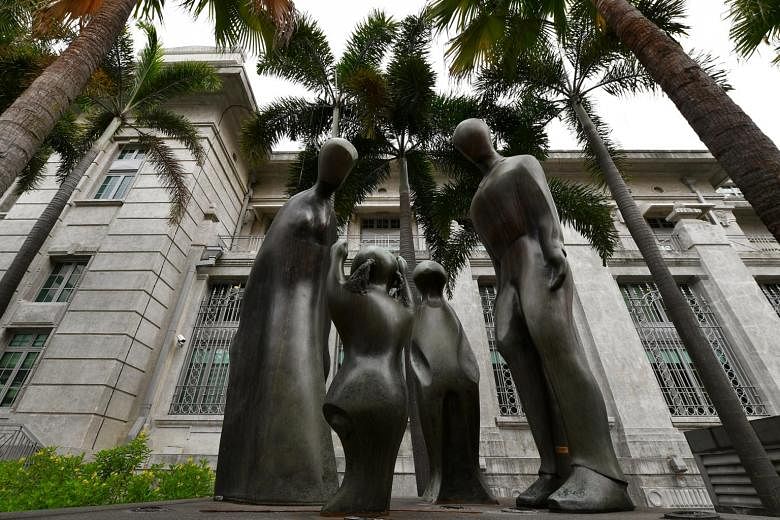SINGAPORE - The Family Justice Courts granted more personal protection orders (PPO) and domestic exclusion orders (DEO) in the three months after Singapore exited the circuit breaker, than the three months before it was imposed on April 7, latest statistics show.
The orders guard people against family violence. A total of 312 PPOs and 27 DEOs were granted between June and August, up from the 229 PPOs and 24 DEOs from January to March.
The orders issued dropped in April and May, with the courts granting 70 PPOs and seven DEOs during these two months when the circuit breaker measures were in force.
Minister for Social and Family Development Masagos Zulkifli gave these figures in a written reply to a question in Parliament on Tuesday (Oct 6), noting that the lower numbers during the circuit breaker period, was "possibly due to the misperception that court services were unavailable".
"MSF (Ministry for Social and Family Development) and partners continued to keep a close watch on family violence and ensured that services remained available, including during the circuit breaker period," said Mr Masagos.
He was responding to a question from Ms He Ting Ru (Sengkang GRC) who had asked for figures on the protection orders and exclusion orders granted.
Domestic violence cases had spiked during the circuit breaker, with the police noting an increase in family violence-related reports.
In a separate written reply to a question, also from Ms He, on the domestic abuse cases, Minister for Home Affairs K. Shanmugam said that the police received a monthly average of 415 family violence reports since April.
This is a 14 per cent increase from the previous monthly average of 365 reports before the circuit breaker period.
Mr Shanmugam said that investigations were initiated in over 40 per cent of these cases, of which 3 per cent were prosecuted in court. About 12 per cent of the cases were given a warning in lieu of prosecution.
"Family violence cases often have complex underlying issues and prosecution may not always be the optimal solution. In some cases, other avenues of assistance may be more appropriate," said Mr Shanmugam.
He added that the police may advise the victim to apply for protection orders, or refer families to social service agencies for counselling and assistance.
Acting on the spike in family abuse cases during the circuit breaker, police have taken a more proactive stance in helping domestic violence victims, by referring those deemed at higher risk of violence to social services, even if they had not asked for help or shelter.
Previously, victims were only referred to the nearest family service centre or family violence specialist centre when they requested assistance.
The police have also said that they will keep tabs on domestic violence victims by contacting them regularly to find out if they need more help.


